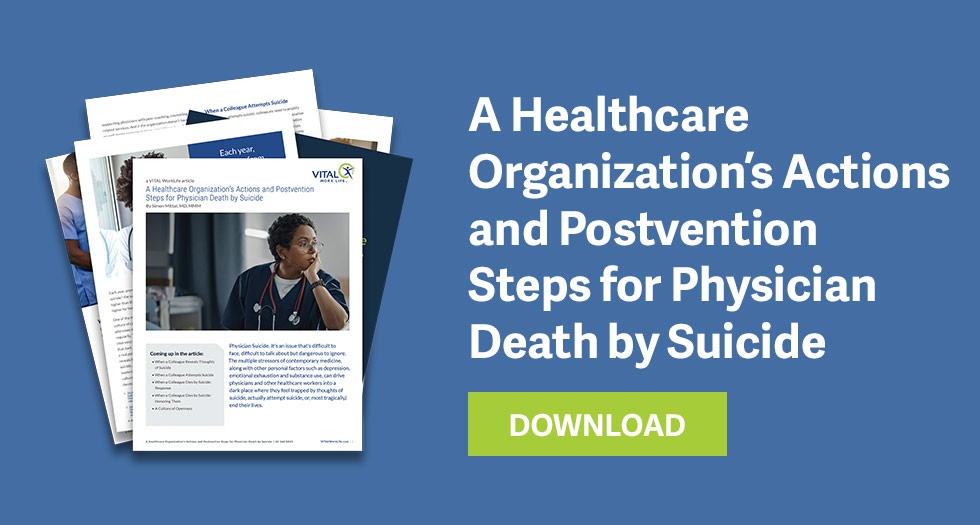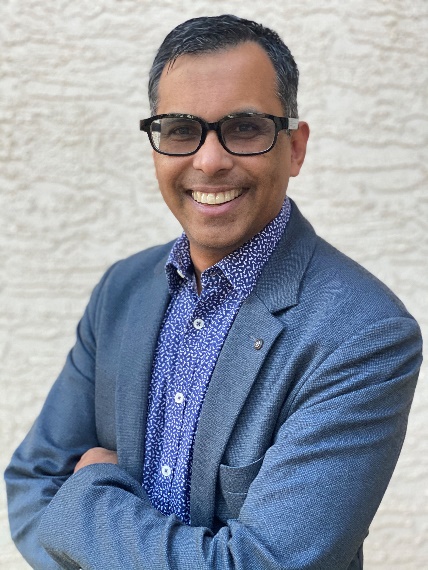As we are all painfully aware, the pressures of contemporary medicine can pile up on a practitioner and the result can be super-stress, loss of joy in medicine, substance abuse, burnout and beyond.
The most somber “beyond” is suicidality—a physician or nurse thinking about suicide, attempting it, or, in the worst case, completes the attempt. It’s a painful reality of medicine today—America loses a physician to suicide just about every day, on average. If leaders and organizations don’t face the phenomenon with courage, compassion and clarity, its reality can be devastating.
Physician and peer coach Simon Mittal, MD has some urgent, but also encouraging, words about how colleagues and organizations can respond to and recover from the various forms suicidality can take. In a wide-ranging article, he discusses how colleagues can support a practitioner who has suicidal thoughts and how the organization can find its way after a suicide attempt or a suicide death.
Key to optimal understanding and response, he says, is making sure that suicide is something we talk about, as part of our general understanding of practitioner trauma and well-being and in the wake of a suicidal event. Openness, honesty and compassion are key, Dr. Mittal writes, and he offers concrete suggestions for supporting everyone involved—from the troubled practitioner, to the extended family of a doctor or nurse who has died by suicide.
Read this hard-hitting but hopeful article here.



